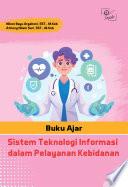In discussing a management topic, scholars, educators, practitioners, and the media often toss out the name of a theorist (Taylor, Simon, Weber) or make a sideways reference to a particular theory (bureaucracy, total quality management, groupthink) and move on, as if assuming their audience possesses the necessary background to appreciate and integrate the reference. This is often far from the case. Individuals are frequently forced to seek out a hodgepodge of sources varying in quality and presentation to provide an overview of a particular idea. This work is designed to serve as a core reference for anyone interested in the essentials of contemporary management theory. Drawing together a team of international scholars, it examines the global landscape of the key theories and the theorists behind them, presenting them in the context needed to understand their strengths and weaknesses to thoughtfully apply them. In addition to interpretations of long-established theories, it also offers essays on cutting-edge research as one might find in a handbook. And, like an unabridged dictionary, it provides concise, to-the-point definitions of key concepts, ideas, schools, and figures. Features and Benefits: Two volumes containing over 280 signed entries provide users with the most authoritative and thorough reference resources available on management theory, both in terms of breadth and depth of coverage. Standardized presentation format, organized into categories based on validity and importance, structures entries so that readers can assess the fundamentals, evolution, and impact of theories. To ease navigation between and among related entries, a Reader’s Guide groups entries thematically and each entry is followed by Cross-References. In the electronic version, the Reader’s Guide combines with the Cross-References and a detailed Index to provide robust search-and-browse capabilities. An appendix with a Chronology of Management Theory allows readers to easily chart directions and trends in thought and theory from early times to the present. An appendix with Central Management Insights allows readers to easily understand, compare, and apply major theoretical messages of the field. Suggestions for Further Reading at the end of each entry guide readers to sources for more detailed research and discussion. Key themes include: Nature of Management Managing People, Personality, and Perception Managing Motivation Managing Interactions Managing Groups Managing Organizations Managing Environments Strategic Management Human Resources Management International Management and Diversity Managerial Decision Making, Ethics, and Creativity Management Education, Research, and Consulting Management of Operations, Quality, and Information Systems Management of Entrepreneurship Management of Learning and Change Management of Technology and Innovation Management and Leadership Management and Social / Environmental Issues PLUS: Appendix of Chronology of Management Theory PLUS: Appendix of Central Management Insights
This is often far from the case. Individuals are frequently forced to seek out a hodgepodge of sources varying in quality and presentation to provide an overview of a particular idea.










